2025: River Histories
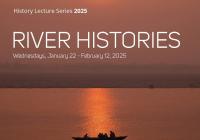
The 50th History Lecture Series took a journey around the world to explore the intertwining of human and environmental history along the banks of some of the most monumental rivers: the Nile, Ganges, Rio Grande, and Colombia rivers.
2024: Seattle and the Salish Sea - Building and Belonging
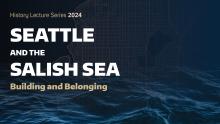
Seattle and the greater Puget Sound region are home to millions, but what first drew people to this area? How did they adapt to this new place? What about the Native population who was already here? In this series, UW History faculty examine the historical changing demographics of the region's population through the lens of groups that have come to inhabit the area over the decades.
2023: Medieval Made Modern
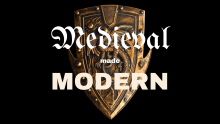
This five-part series presented by Professor Emerita Robin Stacey looks at the present’s relationship with the past through the lens of the making and remaking of important medieval figures — some real, some fictional, and some the creatures of myth.
2022: Capitalism in Action - Culture, Power, History

The 2022 History Lecture Series showcased three presentations by UW history faculty on global capitalism. Speakers covered everything from financial crises to tea to the Jaffa orange. The series concluded with a moderated panel discussion, allowing viewers to connect global histories of capitalism to the problems we face today as a society.
2021: Technology and its Discontents

Speakers examined the role technologies have played in society since the medieval period and traced the connections around the world to contemporary issues of social, economic, and political justice.
2020: Life, Death, and the Gods

What happens after death? How should the living care for the dead? How do beliefs about the gods and the afterlife shape different approaches to death and burial? In these lectures, four UW historians examine the relationship between the living and the dead in Ancient Rome and Iran and among the Aztecs and the Chinese.
2019: Challenging Gender

Throughout the ages and around the globe, history has been shaped by those who dared to defy. The 2019 History Lecture Series shines a spotlight on those who challenged gender expectations and changed the cultural landscape.
2018: Speaking Truth To Power - Protest and Dissent in Modern History
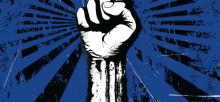
2018's theme was informed by the climate of political activism that was taking shape in an increasingly agitated and divided nation, and aimed to trace connections between historical and contemporary movements and struggles. What lessons might the activists of today learn from those in the past who have stood up to power in the name of social justice?
2017: Worlds Turned Upside Down: Five Revolutions that Shaped Our Times
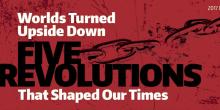
2017 marked the centennial of the Russian Revolution – one of the most decisive and influential events of modern times. It stands within a lineage of dramatic upheavals characterized by violent insurgency, heroic leadership and radical change. Join our faculty as they examine five revolutions around the world to explore how these events still shape our world today.
2016: Excavating Seattle's Histories

Seattle's remarkable past encompasses the stories of Native Americans and pioneers, labor agitators and civil rights activists, loggers and environmentalists, aircraft riveters and software moguls. Four UW scholars chart the social worlds, environments, and political conflicts that shaped the city's past and its present.
2014: The Great War and the Modern World
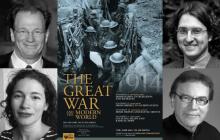
To mark the centenary of the start of the First World War, the History Lecture Series featured presentations by four of our faculty on the topic "The Great War and the Modern World." They considered themes of domination, integration, and betrayal, the transition from empires to nation-states, the tension between "home fronts" and "battle fronts," and the impact of the Great War on European intellectual traditions.
2013: Slavery and Freedom in the Making of America
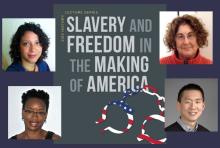
To mark the 150th anniversary of the Emancipation Proclamation in 2013, the History Lecture Series presented four lectures by nationally recognized historians on the theme "Slavery and Freedom in the Making of America." The speakers considered the imagined roots of slavery in Greco-Roman antiquity, the origins and development of racial slavery across the Americas and its centrality to the creation of the United States, and the continued legacies of slavery in post-emancipation American life.